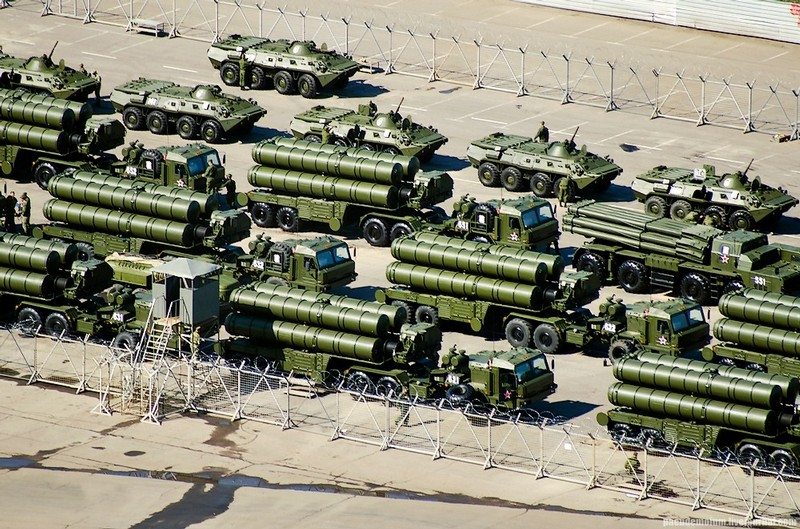Britain is backing a French plan to create a European military intervention force as a way to maintain strong defense ties with the EU after Brexit, a minister told AFP on Saturday.
British junior defense minister Frederick Curzon said London was “very keen to support” French President Emmanuel Macron’s plan for a force that could be deployed rapidly to deal with crises.
The force, known as the European Intervention Initiative, would be separate from other EU defense cooperation, meaning there would be no obstacle to Britain taking part after it leaves the bloc.
“We’re very keen to support President Macron in this initiative,” Curzon told AFP as he arrived for a meeting of EU defense ministers in Sofia.
“We look forward to sitting down with our French colleagues to work through the ideas that they have formulated for a more efficient and joined up security and defense system across Europe. We think it has a real part to play.”
Twenty-five EU countries signed a major defense pact in December, agreeing to cooperate on various military projects, but it is not clear whether Britain would be allowed to take part in any of them after it leaves the bloc.
London has always resisted moves to create anything resembling an “EU army” but it has also stressed it wants to continue to have close security ties with the EU after Brexit.
Curzon said the intervention initiative could play an important role in this.
“It certainly will help to achieve what we are looking for, which is a deep and special partnership with our European colleagues in defense and security,” he said.
The EU this week announced plans to spend nearly 20 billion euros on defense in its budget for 2021-2027, most of which will go on research and developing new military technologies for the bloc.
But December’s defense cooperation agreement, known by the acronym PESCO, did not include plans for an intervention force.
The EU has had four multinational military “battlegroups” since 2007, but political disagreements have meant the troops have never been deployed.
Paris hopes that by focusing on a smaller group of countries its new initiative will be able to take act more decisively, freed from the burdens that sometimes hamper action by the 28-member EU and 29-member NATO.
“The initiative is a way of cooperating between countries with the right operational or support capacities and which are willing to use them wherever it seems necessary and useful,” French Defense Minister Florence Parly told AFP in Sofia.
Parly used Saturday’s meeting to detail the plan to fellow defense ministers and held one-on-one talks with EU foreign policy chief Federica Mogherini to assure her it would not compete with PESCO.
“We had to explain in concrete terms what it involves and reassure some of our partners about the way this initiative is being coordinated with everything the EU is in the process of doing,” she said.
The nine countries that have expressed interest in joining France in the initiative, which reportedly include Germany, Italy, Spain and Estonia, will meet in June to formalize the plan, Parly said.
France has been keen to build a multinational force that could intervene abroad as it did in Mali in 2013.
But Parly said that missions could also include evacuating nationals from hotspots, and that countries unwilling to commit troops to combat could contribute with logistics.
The initiative stands outside PESCO, but Mogherini was at pains to stress that it would be complementary.
“There is full coordination, there is full coherence,” Mogherini said.
“What I see is the intention from the French side to make the future initiative they have in mind perfectly coherent with the work we’re doing on PESCO.”











